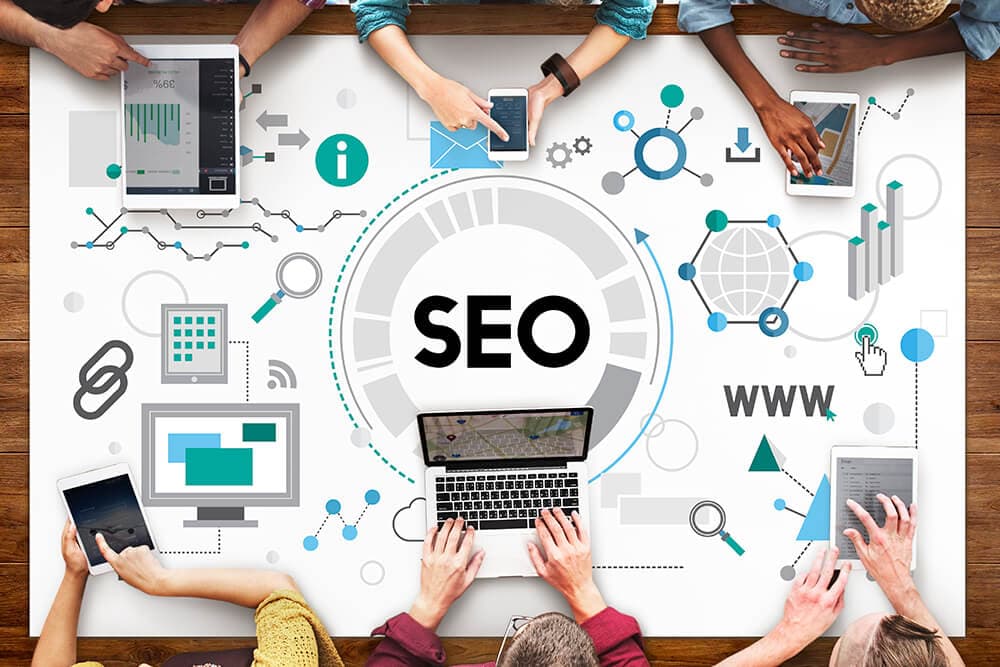SEO or Search Engine Optimization aims to make your own relevant content appear in prominent places. In addition to the position (ranking), it is crucial how close the match is between the search term chosen by the user, the presentation of the search results (snippet) and the relevance of the landing page.

Search engine optimization is sustainable if the user can efficiently solve his task (task completion) on the website. The goal of SEO is therefore not just to be on top. Search engine optimization aims to be represented in relevant search terms with relevant pages in good positions in the relevant search engines. Apart from Google, these search engines can also be search engines such as Bing, Yahoo or Yandex, but also specialized search engines such as Amazon (product search), Indeed (job search) or Trivago (hotel search).
The presentation of the text available in the search engine (snippet) is intended to motivate the user to click on the result, with the aim of fulfilling the user’s expectation with regard to the content of the search term, text and content of the website. The prerequisite is clear and unambiguous access to the entire relevant website, which is optimally prepared for users, regardless of the device (mobile-friendly).
Why is SEO so important? In the following I would like to present some reasons why the topic of search engine optimization is so important for you and for many companies:
Lots of users: On the one hand, and you can check this with your own web analytics data, for many companies Google or search engines are the most important channel for attracting users to their own website.
High conversion rates: Users who come via search engines usually have a high level of motivation on your part to achieve the desired goal. After all, users entered a search term that brought them to your website.
Acquisition of new customers: For many companies, search engines are the most important source for using generic search terms to bring users to their own site. This means that SEO is (often) the most important channel for acquiring new customers.

Differentiation and interaction of SEA and SEO
Search Engine Optimization (SEO) is a branch of Search Engine Marketing (SEM). The second sub-area in search engine marketing (SEM) is search engine advertising (SEA), such as Google Ads or the placement of Bing Ads. Usually one tries to reach users who have a very specific need via search engines.
The main differences between SEO and SEA are:
Billing system: Google Ads has a variable billing model (cost-per-click). Search engine optimization is not free, but differs in the form of billing, which is mostly project-related.
Effect: Google Ads is very performance-oriented and has clear key figures (impressions, CTR, CPC, RPC) with understandable costs. Search engine optimization is to be understood here more like press work. By bundling many sensible measures, they increase the likelihood of good positions, but nobody can give you a guarantee for top positions.
Keyword strategies: The focus in SEO is on specific, relevant search terms or search term clusters. With paid search, it is also possible to bid on adjacent search terms, even if they may have a poor Google Ads quality score. In the end, the conversion counts here. An example of an extended keyword strategy: Terms that are important to us are, for example, SEO seminars or SEO training, for which we optimize ourselves (SEO). Nevertheless, we are expanding the application (Google Ads) of our own seminars to include terms such as SEO training, advanced training, etc. via Google Ads.
What does search engine optimization look like in 2021? Actually, you have to focus on 3 essential criteria. Relevant content: You need relevant, high quality content, based on the needs of your target audience, in the right formats depending on the context. Technical optimization: You need good accessibility of the page, a good information architecture, good internal linking, and your page has to load quickly, be quickly usable and visually stable (Core Web Vitals) Building trust: External relevant links, brand building, mentions & meaningful press work. Follow Tech Star SEO by Cristina Terjanian for advice about SEO.
